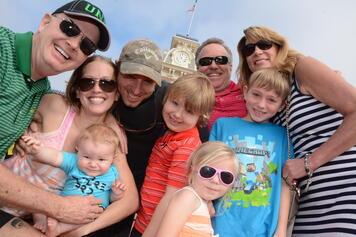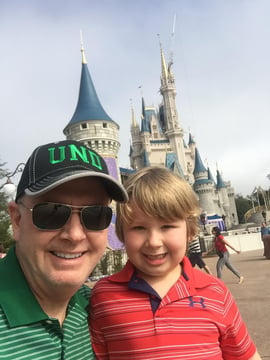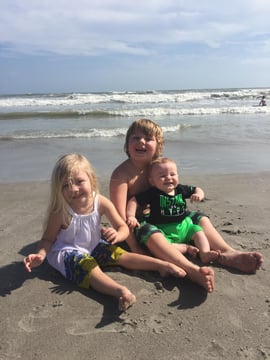In this blog, I have shared leadership lessons I have learned from mentors, millennials, my mom, my kids and others. But I’ve also learned some lessons recently from a much younger age group: preschoolers.
I recently returned from a trip to Disney World with my three grandchildren (ages 8 months to 5 years), my daughter, son-in-law and his parents and nephew. As always, Disney did not disappoint. There’s much we can learn about business from Disney (Check out my blog on that).
My 5-year-old grandson, Wes, and my 3-year-old granddaughter, Addi, taught me a few things during the trip. Here are five lessons that I think we can apply to business, too.
THERE ARE TIMES WHEN….
- The fun should never end.
At the end of our first day at Disney, my grandson asked, “How many more sleeps do we have left?” His face beamed that first day when I said six. Of course, he didn’t want it to end and I know he is already looking forward to our next outing.
At Marco, we have been very intentional about building a culture that people are attracted to and want to be remain a part of long-term. Now, I don’t know how many “sleeps” that might entail, and obviously we’re not an amusement park, but people seem to enjoy their time here. A good environment even makes work fun.
- Money should feel like it grows on trees.
 As kids, it feels that anyway. Like many families that visit Disney World, we spent more on drinks, food, trinkets and activities than we normally would – because it’s about the experience.
As kids, it feels that anyway. Like many families that visit Disney World, we spent more on drinks, food, trinkets and activities than we normally would – because it’s about the experience.
There are times when the money part shouldn’t
be the only consideration in business, too. For example, we have made substantial upfront investments when launching new services in anticipation of positive results. As business people, obviously we recognize money doesn’t grow on trees, but when you plan for a good outcome, your investment should pay off.
- You should run until you drop.
Kids get this right. On our vacation, my grandkids didn’t slow down when they got tired. They powered past their typical bedtimes so they could experience the “next thing.”
When we create a work environment that is fun and fulfilling, employees will do the same. They try harder and stay energized by the atmosphere.
- You’re not as brave as you think you are.
I likely will always remember the Spiderman simulator ride at Universal Studios. My grandson, a Spiderman fan, talked a big game as we approached the ride. Inside, when it really did feel like a large creature was picking up “our car,” he panicked and wanted out.
In business, we can feel good about a bold move, or think we’re making a good, big decision, and still get surprised. It may have looked good going in, but as it plays out, it can get kind of scary if it’s not what we expected. A tolerance for risk is good in business. However, when we have a bad experience like Wes did, we may shy away from the “big” rides – or any ride. But as leaders, it’s critical we shake it off and get on those big rides. They’re often the most fun.
- The simplest things matter most.
 When you take a Disney vacation, it’s common to focus on the Magic Kingdom and all the other high-ticket elaborate theme parks. We may think the “experience” for the kids is all about the rides. But what I found is that the resort pool and the ocean were the highlights for my grandkids. We spent six hours at the beach and they didn’t want to leave. And that was free.
When you take a Disney vacation, it’s common to focus on the Magic Kingdom and all the other high-ticket elaborate theme parks. We may think the “experience” for the kids is all about the rides. But what I found is that the resort pool and the ocean were the highlights for my grandkids. We spent six hours at the beach and they didn’t want to leave. And that was free.
We can focus on the big events or “big things” we do for clients in business. But I think they probably prefer the pool, too. They don’t want a big splash once a year. They appreciate the simple steps we take consistently to build our relationship with them.
My business career spans over 30 years. I’ve certainly had a lot of mentors along the way, I guess I just didn’t think one of them would be a 5-year-old. But you never know who might be teaching you lessons in leadership…

